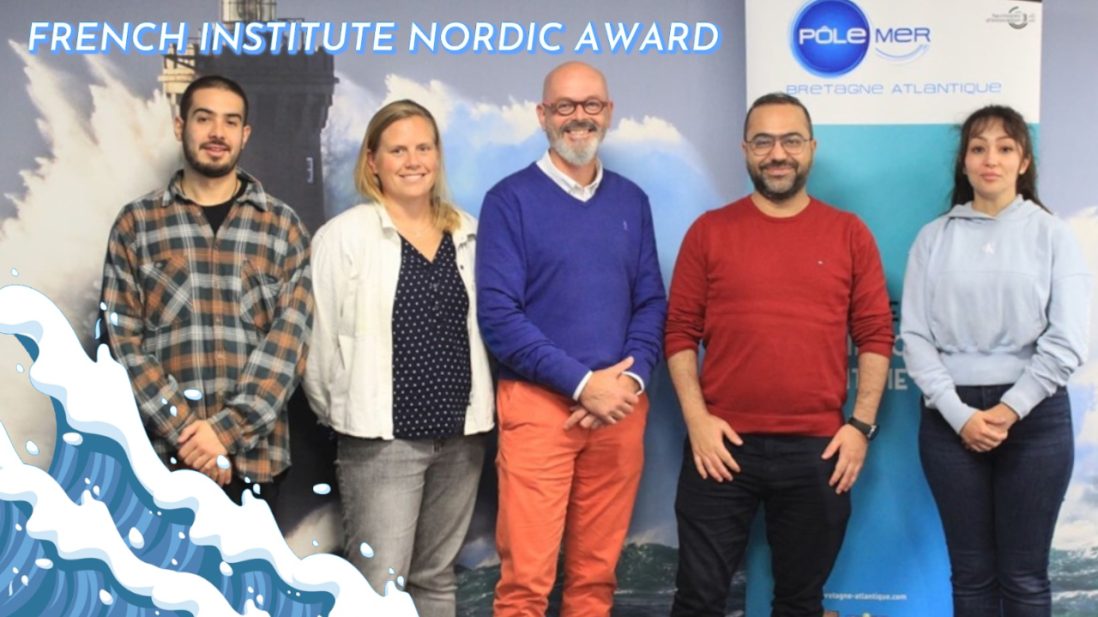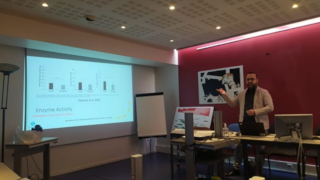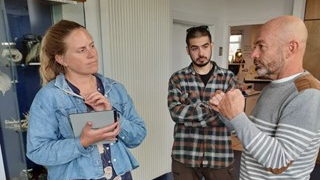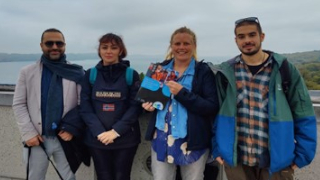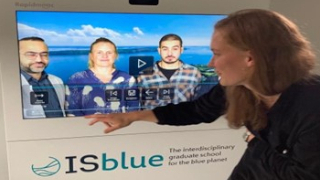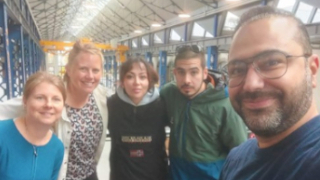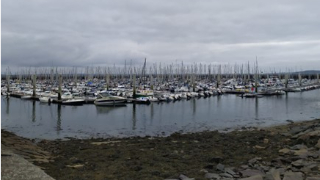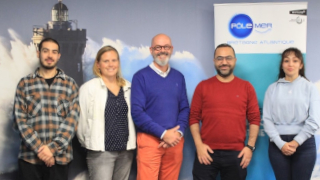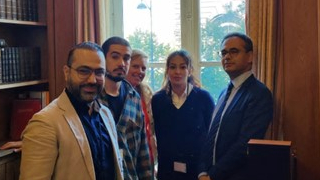The 2022 FINA Award theme was “the oceans” and the 4 laureates went to France for a week of scientific mobility in Brest and Paris. The programme included daily visits to French institutions dedicated to Ocean-related research representing a variety of disciplines and research foci: L’Institut Français de Recherche pour l’Exploitation de la Mer, IFREMER, European Institute for Marine Studies, IUEM; World Sea Campus, Competitiveness cluster Brittany Atlantic; Sorbonne & European Marine Biological Resource Centre, EMBRC.
The Finnish laureate, Rami El Dairi, researcher at the Finnish Environment Institute SYKE, shares with us his feelings on returning from this scientific mobility
- What were your expectations of this scientific mobility to France, and did it meet your expectations?
I expected this visit would include meeting with French researchers and an opportunity for collaborations, which actually happened. However, I also expected some demonstration of techniques, methods, or introducing the labs (transfer of knowledge), which did not happen. It would be worth extending the visit to include full day lab training in IFREMER or IUEM labs for example.
- What are the collaboration opportunities that you would like to explore?
I would like to explore the possible collaborations with several researchers at IFREMER covering topics related to microplastics and marine pollution in general. I am also very much interested in collaborating with EMBRC especially because of their knowledge and experience in applying for funding from HORIZON and other funders.
- How did you perceive French research in comparison to the Finnish one?
There is a lot of money, infrastructure and manpower poured into marine and ocean research in France, which gives France a huge advantage and leading role in Europe when it comes to marine pollutions and research.
- Do you think that maritime research in Finland and France are compatible?
Absolutely, there should be extensive transfer of knowledge and experience between France and Finland in terms of maritime research, considering both countries contain state-of-the art research techniques, infrastructure and research vessels.
- What did you like the most about this visit?
I am very glad that I got the opportunity to visit many French research institutes that are leading the maritime research in Europe. This visit enabled me to expand my perspective and gain new network that can benefit the Finnish research also.
Overall, the French Institute Nordic Award (FINA) provided me with a unique opportunity that may further shape my scientific career in the future. I am grateful to all four French institutes for the coordination of the trip and for providing me the chance to travel to France together with Asal Peydaei, Apostolos Tsiouvalas, and Anna Lunde Hermansson, representing the French Institutes of Denmark, Norway, and Sweden respectively. The diversity of expertise within our group, including international law of the sea, marine noise and toxicology, marine chemistry, and microplastic pollution, created an extremely interesting atmosphere and avenue for discussions, and gave us the opportunity to engage with interdisciplinary conversations that extend beyond our main research areas of interest. Furthermore, the large variety of the program and the thematic diversity of the institutions that we visited, provided us with a comprehensive account of France’s increasing role and engagement in ocean research which indeed has been tremendous.
As the ‘One Ocean Summit’ demonstrated last February in Brest, the challenges that our oceans are currently facing are closely interrelated and need to be considered as a whole. Interdisciplinarity and cross-border collaboration is imperative among the international research community, and such exchange possibilities are thus crucial for graduate students. May this mobility, be only the first step of my collaboration with French research centers, which truly demonstrated their institutional capacity and professional skills during the entire week of mobility.
Thank you for this memorable week and unique experience, Institut français de Finlande!
